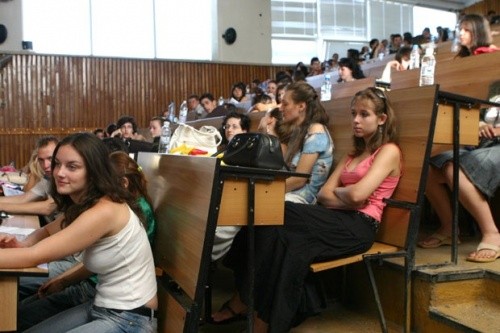The latest findings from the OECD Programme for International Student Assessment (PISA) unveiled the ongoing academic challenges faced by Bulgarian students, particularly in math. The results, presented on Tuesday, disclosed that the average math score of Bulgarian students remains notably lower than the OECD average, holding steady at 417 points, while the OECD average stands at 472.
Bulgarian students’ performance echoes previous assessments, occurring every three years, placing them alongside countries like Cyprus, Moldova, Mongolia, Qatar, and Chile.
The report highlighted that over half of Bulgarian students performed below the baseline standard in math, reading, and science. Disturbingly, nearly half of the students showed disinterest and distraction during class, with digital device usage causing disruptions for 46% of respondents—well above the OECD average of 30%.
Education and Science Minister Galin Tzokov emphasized the need for strategic interventions to improve students’ practical application of acquired knowledge. While acknowledging the limitations of direct test preparation, the focus will be on fostering quality educational standards within schools and supporting educators.
Tzokov shared insights from OECD’s Director for Education and Skills, Andreas Schleicher, indicating that supplementary analyses tailored for Bulgaria would aid in shaping future education policies.
The assessment underscored the profound influence of social environments on student performance, highlighting the impact of household resources like book ownership on academic success.
In the 2022 PISA evaluation involving 6,107 students from various grades across Bulgaria, attention retention and engagement emerged as critical challenges requiring immediate attention for future improvements.

